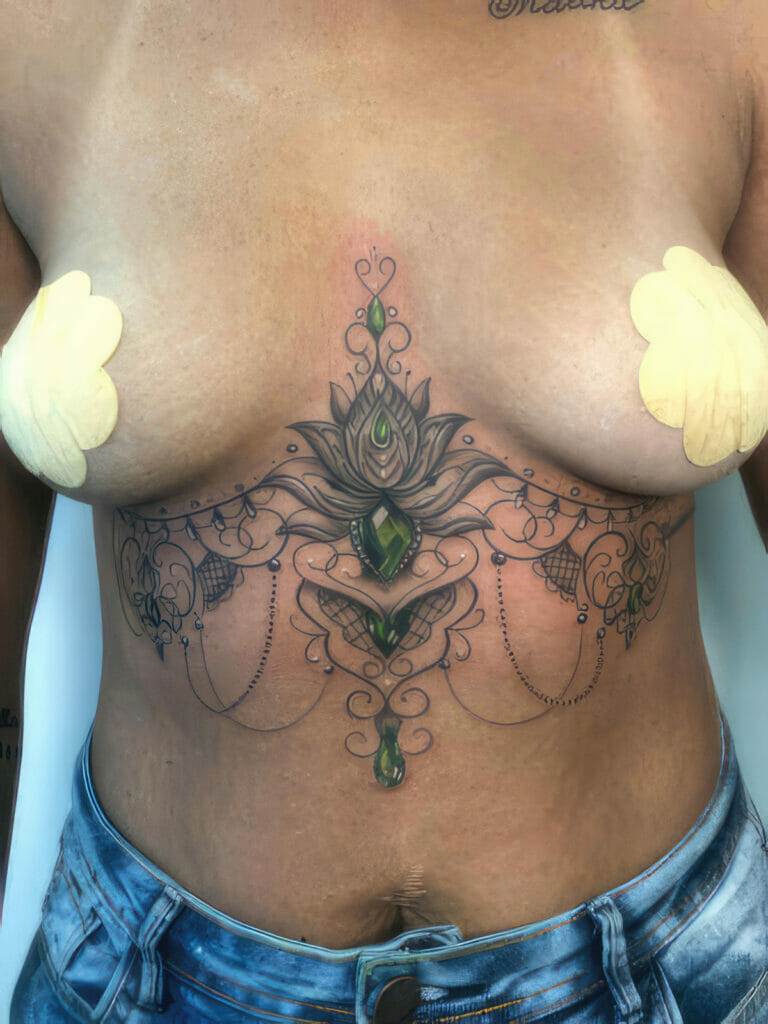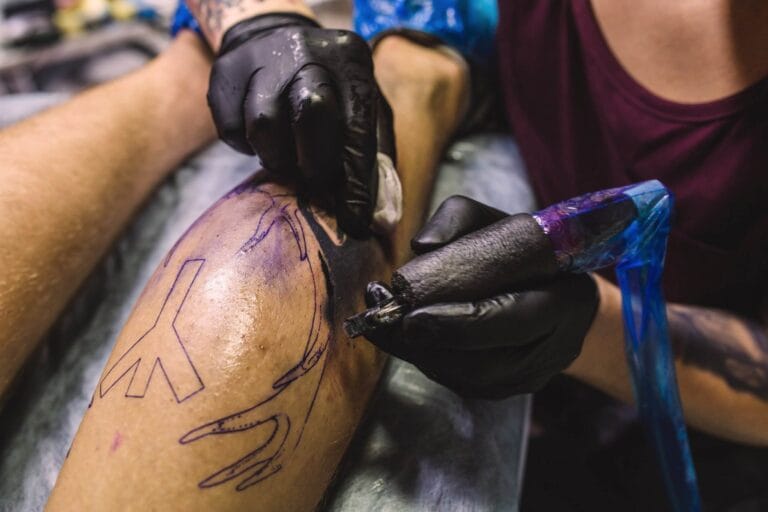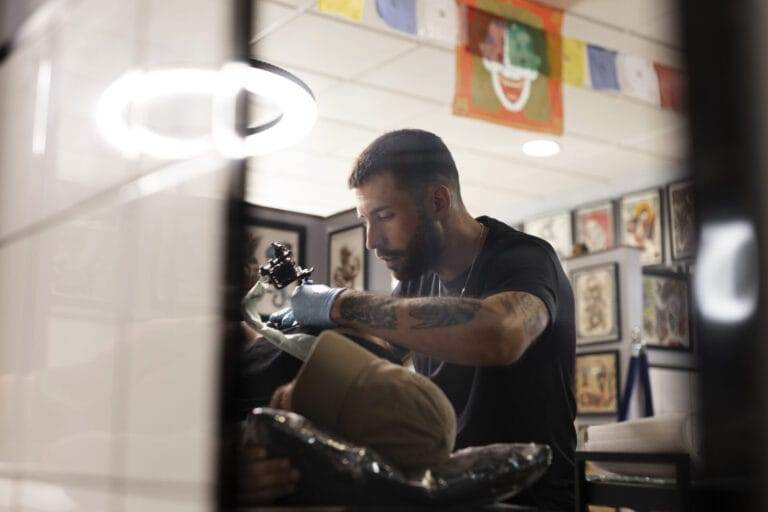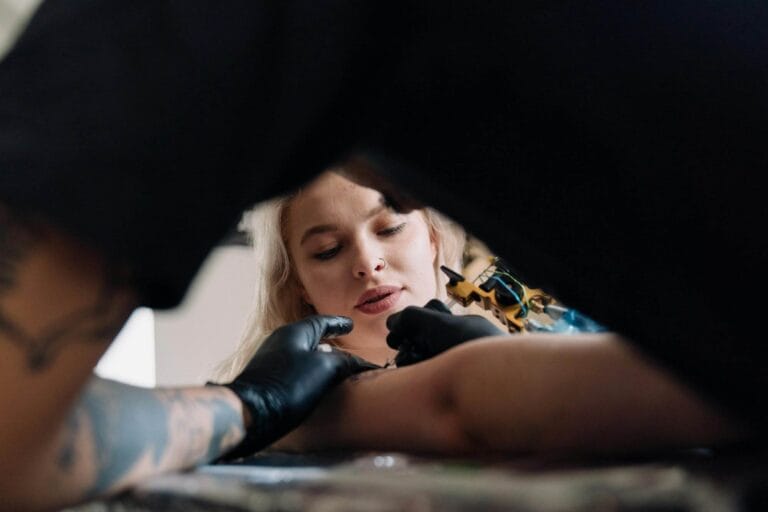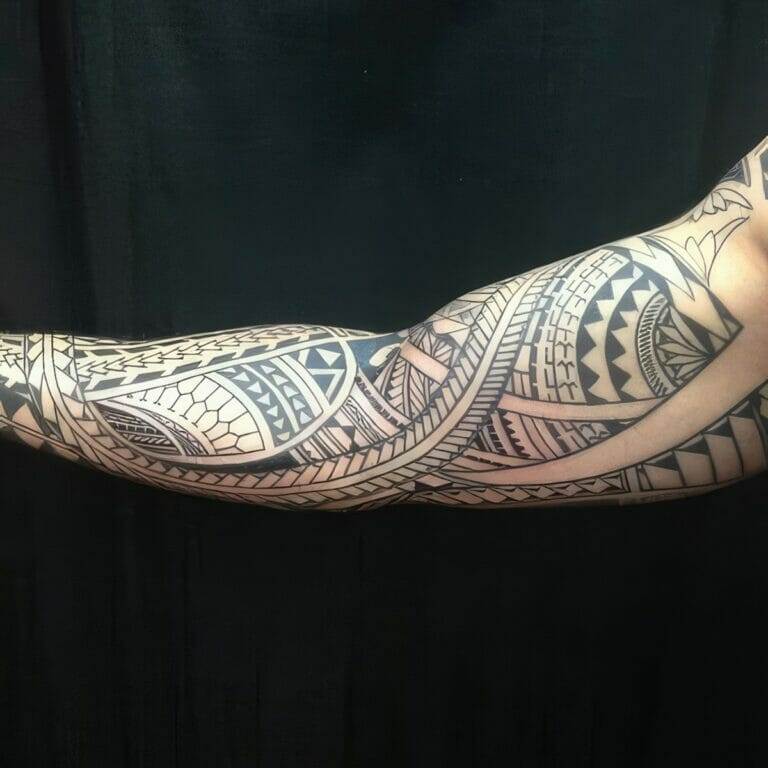
Polynesian tattoos are a form of body art that have a rich cultural heritage and deep significance in Polynesian culture. These tattoos have been practiced for centuries and are an integral part of the Polynesian identity. Polynesia is a region in the Pacific Ocean that includes countries such as Samoa, Tonga, Tahiti, and Hawaii. Each of these islands has its own unique style and symbolism when it comes to tattoos.
Understanding the cultural heritage behind Polynesian tattoos is crucial in order to appreciate and respect their significance. These tattoos are not just decorative designs on the skin, but rather they tell a story and represent important aspects of Polynesian culture. They are deeply rooted in the traditions, beliefs, and values of the Polynesian people. By understanding the cultural heritage behind these tattoos, we can gain a deeper appreciation for their beauty and meaning.
The History of Polynesian Tattoos: From Ancient Times to Modern Day
The history of Polynesian tattoos dates back thousands of years. The art of tattooing has been practiced in Polynesia since ancient times and has evolved over the centuries. In the past, tattoos were done using traditional tools such as bone combs or sharp pieces of shell. The ink used was made from natural materials such as plant dyes or soot.
Polynesian tattoos were not just a form of body decoration, but they also served as a way to communicate important information about a person’s identity, status, and achievements. For example, warriors would often have tattoos on their bodies to symbolize their bravery and accomplishments in battle. Tattoos were also used to mark important milestones in a person’s life, such as reaching adulthood or getting married.
In modern times, Polynesian tattoos have gained popularity around the world. Many people from different cultures are now getting Polynesian-inspired tattoos as a way to connect with the rich cultural heritage of Polynesia. However, it is important to remember that these tattoos have deep cultural and historical significance, and should be respected as such.
The Significance of Polynesian Tattoos: Symbolism and Meanings
Polynesian tattoos are known for their intricate designs and powerful symbolism. Each design has its own unique meaning and represents different aspects of Polynesian culture. For example, the turtle symbolizes longevity and fertility, while the shark represents strength and protection.
Understanding the meanings behind Polynesian tattoo designs is important in order to fully appreciate their significance. These tattoos are not just random patterns on the skin, but rather they tell a story and convey important messages. By understanding the symbolism behind these tattoos, we can gain a deeper understanding of Polynesian culture and values.
The Different Styles of Polynesian Tattoos: Traditional and Contemporary
There are two main styles of Polynesian tattoos: traditional and contemporary. Traditional Polynesian tattoos are characterized by bold, black lines and geometric patterns. These tattoos are often symmetrical and cover large areas of the body. Traditional Polynesian tattoos are deeply rooted in ancient Polynesian culture and have been passed down through generations.
Contemporary Polynesian tattoos, on the other hand, are influenced by modern tattooing techniques and styles. These tattoos often incorporate elements from other tattoo traditions, such as realism or watercolor. Contemporary Polynesian tattoos still maintain the essence of traditional Polynesian designs, but with a modern twist.
The choice between traditional and contemporary Polynesian tattoos is a personal one, and depends on individual preferences and cultural background. Both styles have their own unique beauty and significance.
The Tools and Techniques Used in Polynesian Tattooing: A Closer Look
Traditional Polynesian tattooing is done using traditional tools such as bone combs or sharp pieces of shell. The ink used is made from natural materials such as plant dyes or soot. The process of tattooing is done by hand, with the artist using a tapping motion to insert the ink into the skin.
In modern times, Polynesian tattoo artists have adopted modern tattooing techniques and tools. They now use tattoo machines and disposable needles, which allow for more precise and efficient tattooing. However, many artists still incorporate traditional elements into their work, such as using traditional designs or incorporating traditional symbols.
The Role of Polynesian Tattoos in Society: Identity and Status

Polynesian tattoos play an important role in Polynesian society, serving as a way to express identity and status. These tattoos are often seen as a rite of passage and are earned through achievements or milestones in a person’s life. For example, warriors would often have tattoos on their bodies to symbolize their bravery and accomplishments in battle.
In addition to expressing identity and status, Polynesian tattoos also serve as a way to connect with one’s cultural heritage and ancestors. These tattoos are deeply rooted in Polynesian culture and are seen as a way to honor and remember the past.
The Importance of Polynesian Tattoo Artists: Skills and Training
Becoming a Polynesian tattoo artist requires a high level of skill and training. These artists must have a deep understanding of Polynesian culture, symbolism, and traditions. They must also have excellent artistic skills and be able to create intricate designs that are both aesthetically pleasing and meaningful.
Many Polynesian tattoo artists undergo apprenticeships with experienced artists in order to learn the art form. This apprenticeship can last for several years and involves learning about the history, symbolism, and techniques of Polynesian tattooing.
The Challenges of Preserving Polynesian Tattooing: Cultural Appropriation and Misrepresentation
Preserving the art of Polynesian tattooing is not without its challenges. One of the main challenges is cultural appropriation, where people from outside of Polynesia adopt Polynesian tattoos without understanding or respecting their cultural significance. This can lead to the misrepresentation and commodification of Polynesian culture.
It is important for people who are interested in getting Polynesian tattoos to do their research and understand the cultural heritage behind these tattoos. They should also seek out reputable artists who have a deep understanding of Polynesian culture and symbolism.
The Future of Polynesian Tattoos: Innovations and Evolutions
The art of Polynesian tattooing is constantly evolving and innovating. While traditional designs and techniques are still highly valued, many artists are also incorporating modern elements into their work. This includes using different colors, styles, and techniques to create unique and personalized tattoos.
The future of Polynesian tattoos is bright, as more and more people around the world are becoming interested in this art form. However, it is important to ensure that the cultural heritage behind these tattoos is respected and preserved.
The Enduring Legacy of Polynesian Tattoos in a Globalized World
In conclusion, Polynesian tattoos have a rich cultural heritage and deep significance in Polynesian culture. Understanding the cultural heritage behind these tattoos is crucial in order to appreciate and respect their significance. These tattoos are not just decorative designs on the skin, but rather they tell a story and represent important aspects of Polynesian culture.
The art of Polynesian tattooing has evolved over time, but it still maintains its deep cultural and historical significance. Traditional and contemporary styles of Polynesian tattoos both have their own unique beauty and symbolism. The tools and techniques used in Polynesian tattooing have also evolved, with modern tattoo machines and disposable needles now being used alongside traditional tools.
Polynesian tattoos play an important role in Polynesian society, serving as a way to express identity and status. They also serve as a way to connect with one’s cultural heritage and ancestors. Preserving the art of Polynesian tattooing is crucial in order to ensure that the cultural heritage behind these tattoos is respected and preserved.
The future of Polynesian tattoos is bright, as more and more people around the world are becoming interested in this art form. However, it is important to ensure that the cultural heritage behind these tattoos is respected and preserved in a globalized world. By understanding and appreciating the cultural heritage behind Polynesian tattoos, we can continue to honor and celebrate this rich art form.
If you’re fascinated by the ancient traditions and meanings behind Polynesian tattoos, you’ll definitely want to check out this article on Redemption Ink’s website. They have a fantastic piece titled “Unlocking the Secrets of Polynesian Tattoos: Ancient Traditions and Meanings” that delves deep into the rich history and cultural significance of these tattoos. It’s a must-read for anyone interested in understanding the stories and symbolism behind these beautiful works of art.

